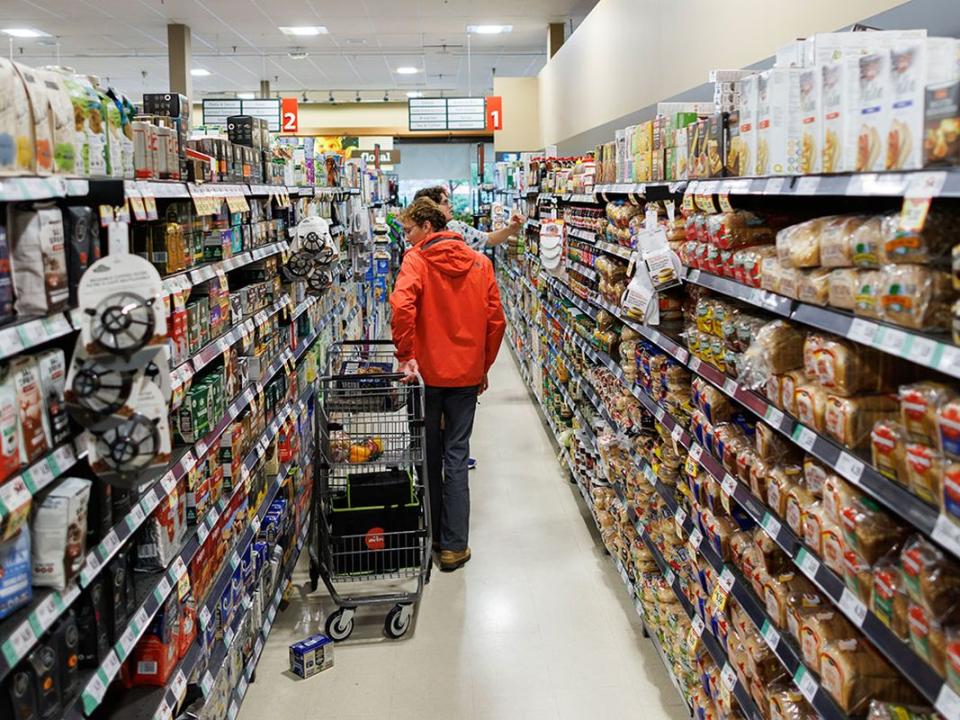Loblaw, Metro point the finger at suppliers as food inflation persists

Food sales are up at two of Canada’s largest grocery chains, Loblaw Cos. Ltd. and Metro Inc. told investors following their fourth-quarter earnings releases on Nov. 15. The Financial Post’s Marisa Coulton breaks down the results and what they have to say about the lingering effects of food inflation.
Grocers’ earnings
In its fiscal fourth quarter, Metro recorded an increase in food sales of 6.8 per cent. Net earnings amounted to $222 million, bringing net earnings for the year up to $1.02 billion. Loblaw recorded sales increases too. Food sales were up 4.5 per cent, bringing net earnings for the year to $1.07 billion.
The gains were hard won, said Eric la Flèche, president and chief executive of Metro, in a Nov. 15 press release. “We are pleased with our fourth quarter results, which were achieved in a challenging operating environment that included a five-week strike at 27 Metro stores in Ontario,” he said. “For the first time in our history, sales for the year exceeded $20 billion and net earnings reached $1 billion.”
Loblaw also touted its results. “Our stores are delivering more value, including deeper discounts on essentials, and customers are responding positively,” said Galen Weston, chairman of Loblaw, in a Nov. 15 press release. “We remain focused on doing what we can to fight inflation and deliver lower prices for Canadians, while continuing to invest for the future.”
Loblaw and Metro have undergone significant structural changes in recent months. For one, Weston has stepped out of the role of chief executive of Loblaw, and into the role of chairman, with Per Bank taking over his role as CEO.
Inflation still a major factor
The results come at a time when grocery prices have improved, but are still higher than the Canadian consumer is comfortable with.
While grocery prices have been moderating, posting a 5.8 per cent year-over-year gain in September, well off the 11.4 per cent peak of a year earlier, they do remain well above the Bank of Canada’s target range.
Earlier this year, the parliamentary agricultural committee speculated as to whether Canada’s five largest retailers, who control 80 per cent of the grocery market, were engaged in “price gouging.”
In March, the chief executives of Loblaw, Metro and Empire Co. Ltd. appeared before the committee and testified under oath that they were not profiteering off of higher grocery prices.
Grocers say inflation is suppliers’ fault
Loblaw is working hard to stabilize food prices for customers, said Richard Dufresne, the company’s CFO, on a Nov. 15 call with investors. It’s suppliers that are the problem, he said.
“As we continue to do our part to fight inflation, we remain concerned about the level of commitment to this cause from some of our suppliers,” Dufresne said. “With lower supplier costs, we can lower prices on the shelf for customers. Unfortunately, several large global suppliers are still coming with higher-than-expected cost increases for next year.”
Resolving inflation is not a one-person job, Weston added. “It’s important to reiterate that grocers are not the reason for higher food prices. So we are unable to resolve inflationary pressures on our own,” he said.
On the conference call, La Fleche said Metro, too, is still receiving price increase requests from big suppliers, which it will “negotiate as much as possible.” He said the grocer’s food basket inflation measurement during the quarter was around 5.5 per cent, lower than food inflation across the country and lower than its third quarter.
— With additional reporting from the Canadian Press
• Email: mcoulton@postmedia.com
Bookmark our website and support our journalism: Don’t miss the business news you need to know — add financialpost.com to your bookmarks and sign up for our newsletters here.

 Yahoo Finance
Yahoo Finance 